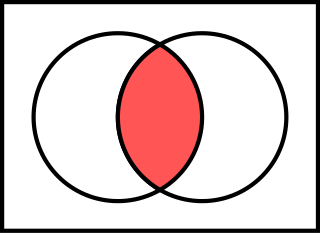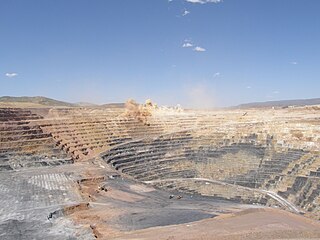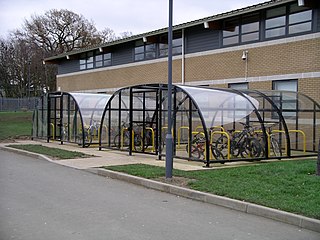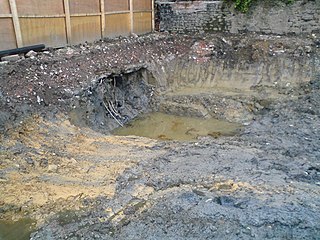This article does not cite any sources .(June 2008) (Learn how and when to remove this template message) |
The non-extractive economic value of land is its monetary value the land creates without extracting resources or artificially developing it.
This article does not cite any sources .(June 2008) (Learn how and when to remove this template message) |
The non-extractive economic value of land is its monetary value the land creates without extracting resources or artificially developing it.

In logic, mathematics and linguistics, And (∧) is the truth-functional operator of logical conjunction; the and of a set of operands is true if and only if all of its operands are true. The logical connective that represents this operator is typically written as ∧ or ⋅ .

Natural resources are resources that exist without any actions of humankind. This includes all valued characteristics such as commercial and industrial use, aesthetic value, scientific interest and cultural value. On Earth, it includes sunlight, atmosphere, water, land along with all vegetation, and animal life. Natural resources can be part of our natural heritage or protected in nature reserves.

Ore is natural rock or sediment that contains one or more valuable minerals, typically containing metals, that can be mined, treated and sold at a profit. Ore is extracted from the earth through mining and treated or refined, often via smelting, to extract the valuable metals or minerals. The grade of ore refers to the concentration of the desired material it contains. The value of the metals or minerals a rock contains must be weighed against the cost of extraction to determine whether it is of sufficiently high grade to be worth mining, and is therefore considered an ore.

Open-pit mining, also known as open-cast or open cut mining, is a surface mining technique of extracting rock or minerals from the earth by their removal from an open-air pit, sometimes known as a borrow.

In computing, extract, transform, load (ETL) is the general procedure of copying data from one or more sources into a destination system which represents the data differently from the source(s) or in a different context than the source(s). The ETL process became a popular concept in the 1970s and is often used in data warehousing.

Georgism, also called in modern times geoism and known historically as the single tax movement, is an economic ideology holding that while people should own the value they produce themselves, the economic rent derived from land, including from all natural resources, the commons, and urban locations should belong equally to all members of society. Developed from the writings of American economist and social reformer Henry George, the Georgist paradigm seeks solutions to social and ecological problems, based on principles of land rights and public finance which attempt to integrate economic efficiency with social justice.
Ecological yield is the harvestable population growth of an ecosystem. It is most commonly measured in forestry: sustainable forestry is defined as that which does not harvest more wood in a year than has grown in that year, within a given patch of forest.

Escargots, IPA: [ɛs.kaʁ.ɡo], is a dish consisting of cooked edible land snails. They are often served as an hors d'oeuvre and consumed by the French people, as well as people in Germany, Great Britain, Italy, Portugal, and Spain. They are also typical of the cuisines of Cyprus, Crete, and other areas of mainland Greece, as well as of the North African countries Tunisia, Algeria and Morocco. The word escargot is also sometimes applied to living examples of those species which are commonly eaten in this way.

A land claim is defined as "the pursuit of recognized territorial ownership by a group or individual". The phrase is usually only used with respect to disputed or unresolved land claims. Some types of land claims include aboriginal land claims, Antarctic land claims, and post-colonial land claims.
Waste is a term used in property law to describe a cause of action that can be brought in court to address a change in condition of real property brought about by a current tenant that damages or destroys the value of that property. A lawsuit for waste can be brought against a life tenant or lessee of a leasehold estate, either by a current landlord or by the owner of a vested future interest. The holder of an executory interest, however, has no standing to enforce an action for waste, since his future interest is not vested. There are several different kinds of waste under the law.
HMAC-based One-time Password (HOTP) is a one-time password (OTP) algorithm based on hash-based message authentication codes (HMAC). It is a cornerstone of the Initiative for Open Authentication (OATH).

National Conservation Lands, formally known as the National Landscape Conservation System, is a 35-million-acre (140,000 km2) collection of lands in 873 federally recognized areas considered to be the crown jewels of the American West. These lands represent 10% of the 258 million acres (1,040,000 km2) managed by the Bureau of Land Management (BLM). The BLM is the largest federal public land manager and is responsible for over 40% of all the federal public land in the nation. The other major federal public land managers include the US Forest Service (USFS), National Park Service (NPS), and the US Fish and Wildlife Service (USFWS).
Meat extract is highly concentrated meat stock, usually made from beef. It is used to add meat flavour in cooking, and to make broth for soups and other liquid-based foods.

Law of triviality is C. Northcote Parkinson's 1957 argument that people within an organization commonly or typically give disproportionate weight to trivial issues. Parkinson provides the example of a fictional committee whose job was to approve the plans for a nuclear power plant spending the majority of its time on discussions about relatively minor but easy-to-grasp issues, such as what materials to use for the staff bike shed, while neglecting the proposed design of the plant itself, which is far more important and a far more difficult and complex task.

Soil contamination or soil pollution as part of land degradation is caused by the presence of xenobiotics (human-made) chemicals or other alteration in the natural soil environment. It is typically caused by industrial activity, agricultural chemicals or improper disposal of waste. The most common chemicals involved are petroleum hydrocarbons, polynuclear aromatic hydrocarbons, solvents, pesticides, lead, and other heavy metals. Contamination is correlated with the degree of industrialization and intensity of chemical substance. The concern over soil contamination stems primarily from health risks, from direct contact with the contaminated soil, vapour from the contaminants, or from secondary contamination of water supplies within and underlying the soil. Mapping of contaminated soil sites and the resulting cleanups are time-consuming and expensive tasks, requiring extensive amounts of geology, hydrology, chemistry, computer modeling skills, and GIS in Environmental Contamination, as well as an appreciation of the history of industrial chemistry.
Mineral rights are property rights to exploit an area for the minerals it harbors. Mineral rights can be separate from property ownership. Mineral rights can refer to sedentary minerals that do not move below the Earth's surface or fluid minerals such as oil or natural gas. There are three major types of mineral property; unified estate, severed or split estate, and fractional ownership of minerals.

Silver mining is the extraction of the precious metal silver from the Earth through excavation.

Trepanging is the act of collection or harvesting of sea cucumbers, known in Indonesian as trepang, Malay těripang, and used as food. The collector, or fisher, of trepang is a trepanger.
House prices increased in Wales during the Housing market crisis in the United Kingdom (2008). There has been political debate that this has contributed to a decline in the number of speakers of the Welsh language.

On wikis, an infobox is a table used to collect and present a subset of information about its subject, such as a document. It is a structured document containing a set of attribute–value pairs, and in Wikipedia represents a summary of information about the subject of an article. In this way, they are comparable to data tables in some aspects. When presented within the larger document it summarizes, an infobox is often presented in a sidebar format.